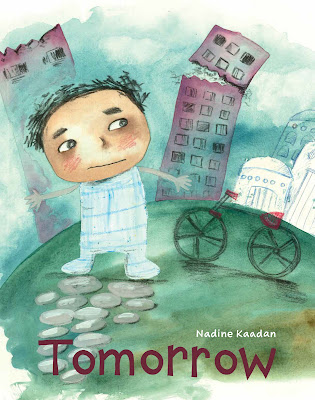The annual CLPE survey, which is funded by Arts Council England, launched in 2017 with the key focus of determining the extent and quality of ethnic minority characters featured within Picturebooks, Fiction and Non-Fiction for ages 3–11 published in the UK. The fifth Reflecting Realities report was published in November 2022. Annual reporting shows an increase in the number of children’s books published featuring a minority ethnic character from 4% in 2017 to 20% in 2021.
The percentage of books published with a main character from a racially minoritised background has risen year on year but remains extremely low at 9% in 2021.
We invited Nadine Kaadan to reflect on championing inclusive representation in the UK based on her own experiences.
When I moved to London in 2013, we thought it would be for around a year. My husband said to me “When the conflict ends in Syria we will come back” and we both truly believed that. We never imagined the life that we would build here, and here we are, 10 years and two children later. I was told, to my dismay, that publishing a children’s book would be almost impossible here. There were only 3% of children’s books published that featured BAME characters. I thought my chances were close to zero, but I wanted to try. I feel so grateful that Lantana Publishing picked my stories, and my journey started with them.
As sad as it was to be forced to leave my country, writing and illustrating children’s books was my way to process what was happening, and still is. It’s the thing that has helped me the most in directing my grief and anger at what was happening in Syria.
I’ve been lucky enough to write books about my experiences, both through my own eyes, and the eyes of the children I knew.
‘Tomorrow’ is based on my life during the war in Syria, watching how children reacted (including my niece) and seeing the confusion in their eyes. I really felt the need to bring that story to life.
Most recently, I’ve been able to collaborate with other writers and illustrators: Ada Jusic, Ramzee, Sonya Zhurenko, and Marie Bamyani to tell our real life stories to help children understand our experiences.
During my 10 years in London, I have watched the children’s book industry grow and mature, especially when it comes to diversity and inclusivity. It is wonderful to see more and more authors of colour getting published, with so much more awareness of the importance of more inclusive children’s books.
However, it’s sad to still see such a lack of authenticity within the children’s book market, and so much cultural appropriation. The subjects of Syria, war and seeking refuge particularly tug on my heart strings.
I wonder why authenticity isn’t at the forefront of the industry’s minds? Why aren’t we seeing more writing of people’s own stories? Why are there stories by authors that are not part of the culture they’re writing about? Stories about things they have not experienced, such as war? It is great that there is more exposure and awareness being sought.. but isn’t it important that what’s being read is authentic… coming from real life experience?
Editors and publishing houses seem to be trying to solve the issue of diversity by simply hiring an author of colour, but we are not a monolith. Our cultures and experiences can be so vastly different and they are not interchangeable. I also do not believe that hiring sensitivity readers solves this issue either. In fact, I think it adds further to it.
I really feel that where there is a story about war, cultural diversity, or disability, we really need authenticity - people telling their own stories in their own voices. No matter how much research has been done, our own voices bring real depth and truth to any story; because only we can bring real life memories and cultural identity to the characters and the plot.
That being said, I have also read some wonderful books, that are truly authentic, which I have found extremely inspiring and empowering. My son’s bookshelf is full of these books! Three of our favourites are:
‘That’s not my name’ written and illustrated by Anoosha Syed A story that comes from the author’s own experience of people mispronouncing her name.
A wonderful book about the world of neurodiversity, coming from the author’s own life.
Nnedi brings her beautiful Nigerian culture in this fun filled adventure of an Anayago during the yam festival.
Nadine Kaadan is from Damascus, Syria, now living in London where she completed her Masters in Communication Design in Kingston University, and a Masters in Art and Politics at Goldsmiths University. Nadine is passionate about championing empowered and inclusive representation in children’s books. Her work with young refugees was featured in a BBC short film under the title ‘Writer Nadine Kaadan Helps Syrian Children Understand War’, and CNN Connect the World program among others. She is the 2019 winner of the Arab British Centre Award for Culture, and was nominated for the Asian Women Of Achievement Award 2020. Find out more at https://www.nadinekaadan.com/
What's your experience of inclusive and representative books for children in the UK? Do you have books you would like to recommend to other readers? Share with us.








This is a very important topic, thanks for sharing, Nadine! In recent years, we've seen more books by own voices and initiatives such as Booktrust Represents, All Stories and the Jericho Prize offer mentorships, supported by organizations such as SCBWI British Isles, which offers free places at all of its events to support authors and illustrators traditionally underrepresented in children's books. We definitely need more voices! I would also like to recommend I AM NEFERTITI, a book by debut Black author Annemarie Anang, illustrated by Natelle Quek, published by Five Quills. It, too, talks about the importance of names and belonging.
ReplyDelete